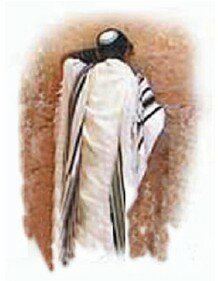| Yom Kippur -the day of atonement |

|

|
|
Yom Kippur is considered the most important holiday of the Jewish year, especially if it falls on Shabbat as it does in 2010. This holiday falls on the 10th day of Tishrei in the Hebrew calendar, which is 10 days after Rosh Hashanah. These 10 days are meant to be days of awe and deep introspection. When we reach Yom Kippur we refrain from work, fast and attend synagogue services. The name Yom Kippur means “Day of Atonement.” It is a day set aside to “afflict the soul,” to atone for the sins of the past year. This day is, essentially, our last appeal and our last chance to change the judgment, to demonstrate our repentance and make amends so we may be sealed in the book of life. Yom Kippur atones not only for sins between man and G-d, but also for sins against another person. To atone for sins against another person, one must first seek reconciliation with that person and righting the wrongs committed against them if possible.This is best done before Yom Kippur. Observance to Fast Yom Kippur appears in the following verses in the Torah. In the seventh month, on the tenth day of the month, you shall afflict your souls, and you shall not do any work ... For on that day he shall provide atonement for you to cleanse you from all your sins before the L-rd. - Leviticus 16:29-30 We refrain from eating any food or drinking on Yom Kippur. The Day reminds us to focus on the spirituality rather than be distracted by earthly concerns. The 25-hour fast begins before sunset on the evening before Yom Kippur and ends after nightfall on the day of Yom Kippur. The Talmud also specifies additional restrictions: washing and bathing, anointing one’s body (with cosmetics, deodorants,), wearing leather shoes, and engaging in sexual relations. As always, any of these restrictions can be lifted where a threat to life or health is involved. It is common for people to consult with their Rabbi if they have questions or concerns. Most of the holiday is spent in the synagogue, in deep prayer. The service ends at nightfall, with the blowing of the tekiah gedolah, a long blast on the shofar. It is customary to wear white on the holiday, which symbolises purity and calls to mind the promise that our sins shall be made as white as snow. Some people wear a kittel, the white robe which is used by men under the wedding canopy.
The evening service that begins Yom Kippur is known as Kol Nidre, which means “all vows,” and in this prayer, we ask G-d to annul all personal vows we may make in the next year and to ask G-d for forgiveness for sins we have committed. All sins are confessed in the plural emphasising communal responsibility for sins. There are two basic parts of this confession: Ashamnu, a shorter, more general list of sins and Al Cheit, a longer and more specific list. Frequent petitions for forgiveness are interspersed in these prayers. The vast majority of the sins enumerated involve mistreatment of other people, most of them by speech (offensive speech, scoffing, slander, swearing falsely, to name a few). These all come into the category of sin known as Lashon ha-ra (lit: the evil tongue), which is considered a very serious sin in Judaism. During the morning prayers, the Yitzkor service is recited in memory of all those who have passed away. On Yom Kippur is also the only day during the Jewish calendar year where we pray five times rather than the customary three. The concluding service known as Ne’ilah, is one very unique highlight of the day. The ark is kept open throughout this service, which means congregants must stand throughout the service if possible. There is a tone of desperation in the prayers of this service. The service is sometimes referred to as the closing of the gates of heaven; as the “last chance” to get in a good word to G-d before the day ends. On conclusion of the fast it is customary for people join with their families in a breaking of the fast meal. After Yom Kippur, one should begin preparing for the next holiday, Sukkot, which begins five days later. (Issue September 2010)
|

















 Yom Kippur service
Yom Kippur service